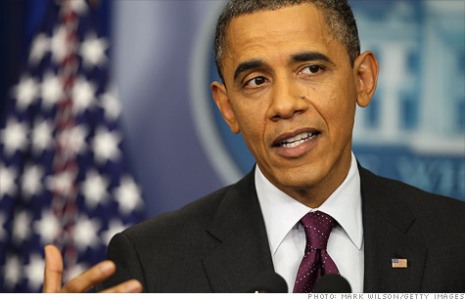Archive
The Effectiveness of Campaign Commercials
Above is a screenshot of a campaign ad for Ron Paul
The topic of study that interested me the most this trimester in Government was the Campaign Commercials. Before studying this topic, I never paid any attention to political commercials on TV that played in preparation for the elections. I never thought about why certain commercials were the way they were and why some played music and others did not. One day in class we did a group assignment that challenged our knowledge about these commercials. Our knowledge wasn’t tested from a factual political standpoint per-say but more as of from the media standpoint of these commercials, how different factors could largely impact viewers’ opinions. Before this day in government if I tried to analyze a campaign commercial for effectiveness, I would think about how long the commercial was and if this held my attention. If it did, it would probably make an impact on me. These topic of study in government challenged us to think more and to push ourselves a little further than simply analyzing a commercial based on length in my case.
In this assignment, we were told to analyze several different campaign commercials through four levels of effectiveness: emotion, persuasion, factual claims, and cinematic style. As a group, we broke down these commercials and took them apart, studying every tiny detail that the producers put in the commercial because every aspect of the video is very important. We were challenged to view these commercials from a critical eye with the levels of effectiveness in mind. Some commercials were really influential while others, not so much. We learned that the impact that these commercials did or didn’t make were a direct result of how well the commercials nailed the four levels of effectiveness we were studying about. We learned that in fact the right choice of music or visuals could easily alter the persuasion of the commercial in either a negative or positive way. For example, the “Senator Margaret Chase” commercial was one that my group rated negatively for cinematic style. This ad is extremely boring and uninteresting, lacking sound and music effects as well as other elements to keep viewers interested. A commercial like this would have many viewers flipping the channel and not focusing on Senator Chase’s point that she is trying to get across. Besides rating the commercials based on visual effects, tone and audience directed were other factors that our group analyzed. Turns out these factors played a larger role than I once thought before we studied about these. It was interesting to notice myself watching a commercial on the computer and becoming more and more drawn to the commercial and realize it was because of these factors that drew my attention so well.
With technology developing seemingly at the speed of light nowadays, campaign commercials remain to be an important asset to a successful election. Young voters are a vital part of the election process. In other units of study throughout this trimester, we have learned that while the younger generation has played an avid role in past elections, we might be losing this large group of support because frankly, many just don’t seem to care. Candidates must fight for this attention and what better way to do it than through a short, effective, and visually appealing commercial played on national television for the world to see? Little things can go a long way, and I have first-hand been impacted by the campaign commercials I watched for this topic of study. I can honestly say that if I was eligible to be a voter and saw a commercial on TV that persuaded me, I would be inspired to play a role in the election process and make my vote.

